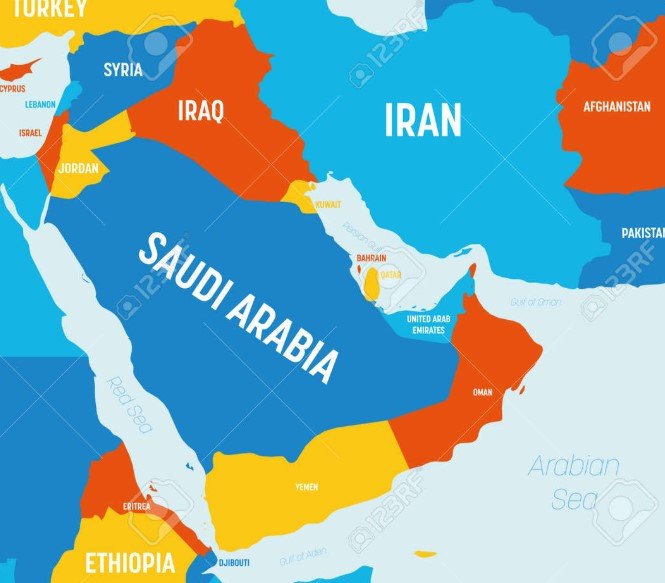The United Arab Emirates issued a strong warning to Israel on September 3, 2025, stating that any move to annex parts of the occupied West Bank would cross a critical red line and threaten the Abraham Accords. This comes amid proposals from Israeli Finance Minister Bezalel Smotrich to apply sovereignty over about 82 percent of the territory, sparking concerns over regional stability and the two-state solution.
Background on the UAE Warning
A senior UAE official, Lana Nusseibeh, spoke out in interviews with major outlets, emphasizing that annexation would end efforts for regional integration. She highlighted how the Abraham Accords, signed in 2020, were meant to support peace and Palestinian statehood aspirations.
The accords normalized ties between Israel and several Arab nations, including the UAE, Bahrain, and Morocco. At the time, Israel agreed to pause annexation plans as a key condition. Now, with recent pushes from Israel’s right-wing coalition, the UAE sees this as a direct challenge to that agreement.
Nusseibeh appealed directly to Israelis, warning that such actions would bury the two-state solution. The Palestinian Authority welcomed the stance, calling it a positive step against settlement expansion.
Smotrich’s Annexation Proposal Details
Finance Minister Bezalel Smotrich, a far-right leader, unveiled his plan at a Jerusalem news conference. He argued for applying Israeli sovereignty to maximize land control while minimizing Palestinian populations.
His map outlined control over 82 percent of the West Bank, leaving isolated enclaves around cities like Jenin, Nablus, and Hebron. Smotrich described it as a way to prevent a Palestinian state, which he called a threat to Israel.
This proposal responds to recent recognitions of Palestinian statehood by countries like the UK and France. Netanyahu’s government has debated advancing annexation as a countermeasure, viewing statehood recognition as rewarding terrorism after the October 2023 Hamas attacks.

Israel has built around 160 settlements housing over 700,000 Jewish residents in the West Bank since occupying it in 1967. International law deems these settlements illegal, and they remain a flashpoint in the conflict.
Impact on Abraham Accords and Regional Ties
The Abraham Accords marked a historic shift, fostering economic and diplomatic links between Israel and Arab states. The UAE, a key signatory, has invested heavily in trade and technology partnerships with Israel since 2020.
However, officials warn that annexation could unravel these gains. Reports indicate the UAE has communicated concerns to the incoming U.S. administration under President Trump, who brokered the original deals.
Other signatories like Bahrain and Morocco have stayed silent so far, but experts predict ripple effects. The accords aimed to sideline the Palestinian issue for broader integration, yet ongoing Gaza conflicts and settlement activities have strained relations.
Here are key elements of the Abraham Accords affected by this tension:
- Normalized diplomatic relations with Israel for UAE, Bahrain, Sudan, and Morocco.
- Boosted trade volumes, reaching billions in annual exchanges between UAE and Israel.
- Joint projects in areas like water technology, agriculture, and defense.
- Suspended Israeli annexation plans as a core UAE demand in 2020.
International Reactions and Broader Context
Global responses have been swift. The U.S. has urged restraint, with reports of private warnings from Washington to avoid escalation. European nations, already moving toward Palestinian recognition, condemned the proposal as a blow to peace efforts.
Palestinian leaders see this as part of a pattern of land grabs, with over 3.3 million Palestinians living in the West Bank amid growing settler violence. Recent incidents include attacks on farms and villages, heightening fears of displacement.
In Gaza, ongoing strikes have killed dozens, adding to the humanitarian crisis. The UN estimates over 40,000 Palestinian deaths since the war began, underscoring the urgency for de-escalation.
To illustrate the scale of settlements and their growth:
| Year | Number of Settlements | Jewish Population in West Bank |
|---|---|---|
| 1967 | 0 | 0 |
| 2000 | 120 | 200,000 |
| 2020 | 140 | 450,000 |
| 2025 | 160 | 700,000 |
This table shows the steady expansion, which international bodies like the UN have repeatedly criticized.
Potential Outcomes and Next Steps
Experts predict that pushing annexation could isolate Israel further, especially with Trump’s return to office. While Trump supported the accords, his stance on settlements remains pro-Israel, but allies like the UAE may demand concessions.
For Palestinians, this reinforces calls for global intervention. Negotiations stalled long ago, and with Smotrich’s influence in Netanyahu’s coalition, moderate voices in Israel worry about long-term security risks.
The situation ties into broader Middle East dynamics, including Iran’s role and normalization efforts with Saudi Arabia. A collapse of the accords might hinder these, affecting energy and security pacts.
As this story develops, readers should stay informed on how these warnings might shape diplomacy. Share your thoughts in the comments below or spread the word to keep the conversation going on this critical issue.
